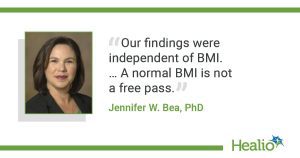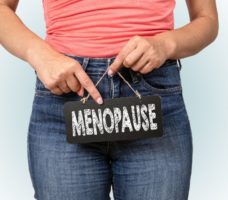Menopause is a normal phase of our lives. We even start expecting it at a certain age. It comes with symptoms too. The thing about menopause is that even though it is expected, the symptoms can be very uncomfortable. You can be sweating buckets on a cold day because of hot flashes, breaking your hip because of reduced bone mass, battling mood swings, and staying all night because night sweats wake you up.
The symptoms of menopause can significantly reduce the quality of your life. Imagine explaining to your superior that you are stressed and can’t bring your A-game to work because you didn’t sleep all night? Or telling a lover of your urogenital dryness.
Imagine being afraid to leave your house because of incontinence or not being able to go because of body pains and aching joints. Yes, I agree that we must deal with menopause because we do not have a choice, but don’t we at least stand a fighting chance against these symptoms? Isn’t there a way to reduce the effects of these symptoms?
In answer to these questions, we have seen a lot of research. Studies have been trying to figure out ways to cope with these symptoms. Many orthodox and alternative medical options exist for people who want any therapy. But then, did you know that you can help reduce menopausal symptoms even from the comfort of your home? You can do little things to help you reduce the severity of your symptoms, and one of such little things is what you eat.
It should not surprise you anymore that what we eat will affect how our body works. I mean, that is why we are eating. When you have a proper diet, you will be shocked at its effect on your menopausal symptoms and your entire health. How do we know what to eat? Well, the best idea would be to talk with a dietician or a menopause specialist who will create a diet plan for you to follow, but in general, here are some tips to help:
- Your diet should be rich in calcium, vitamin D, and magnesium. You should consume fruits, greens, colorful vegetables, and dairy products like yogurt, cheese, and milk. When we enter menopause, we become at a higher risk of getting conditions such as osteoporosis. Foods like this will help keep our bones in top form.
- Reduce the intake of fat to the barest minimum. Fat should account for no more than 25% to 35% of your total calorie intake. Limit your saturated fat intake to less than 7% of your daily calories. Saturated fat elevates cholesterol levels and increases your chances of developing heart disease. Many of our staple foods and guilty pleasures like fatty meats, full milk, ice cream, and cheese all include it. Limit your cholesterol intake to 300 mg per day or less. Trans fats, which can be found in vegetable oils, most of our baked goods, and some margarine, should be avoided. Trans fat elevates cholesterol levels and puts you at risk of cardiovascular disease.
- You should also reduce the rate at which you consume sugar and salt. It is especially necessary for salt because too much sodium is not suitable for the heart.
- Consume omega3 fatty acids. They have shown a lot of promise in combating menopausal symptoms. They also play other vital roles in keeping the body healthy. With Omega3 acids, your cardiovascular system functions optimally. There are no downsides to eating foods rich in this nutrient.
We have laid down some ground rules. So, let us look at some of the foods you should add to your diet and the ones you should avoid as if they were heavy rain and you are carrying a bag of salt.
Menopause Diet – What Are The 7 Foods To Eat During Menopause
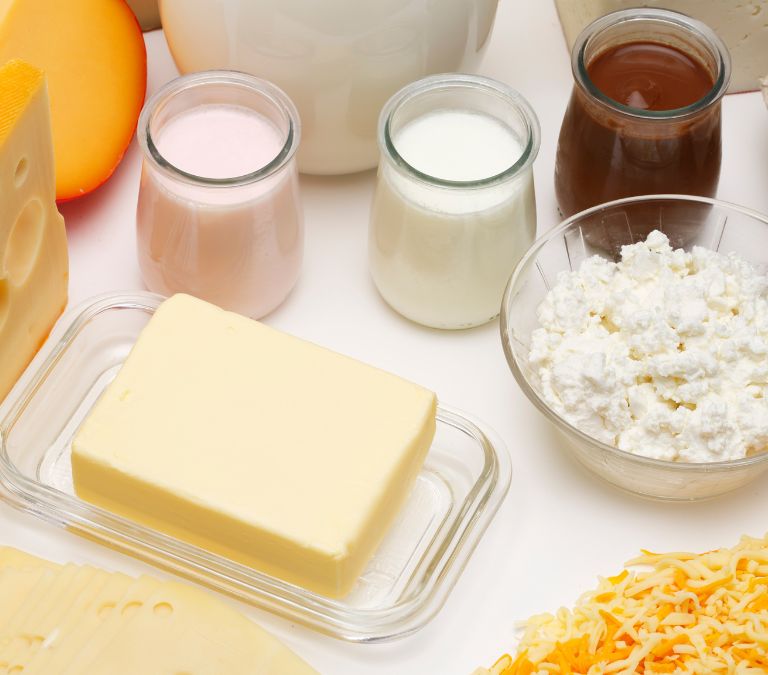
Eat Dairy
I mean, this much should be obvious. We have already mentioned that you should eat foods rich in calcium and vitamin D. When it comes to these two food groups, we are advised to get them from foods mainly and only use supplements when necessary. And guess which food is packed with these particular nutrients? Dairy!
This food class is significant for menopausal women because of the simple fact that, as menopausal women, our bones are prone to breakage. With lower estrogen levels accompanying menopause, we begin to lose bone density. The effect is that our bones will break with much less effort than expected. But dairy is here to save us from this fate. Studies have shown that women who actively consume dairy have higher bone density than women who do not.
Dairy contains vitamin D and calcium, which are critical for maintaining the structural credibility of the bones. They also contain magnesium, phosphorus, potassium, and vitamin K.
Dairy has also been implicated as a sleep inducer. I mean, there is a reason why we are advised to take a glass of milk when we can’t sleep. And for menopausal women, sleep can make the difference between a perfect day and a horrible day.
Eat Whole Grains For Your Heart
As we enter menopause, we become more at risk of developing several health conditions. Some of the most popular ones are cardiovascular conditions. These conditions are usually due to the drop in estrogen seen during menopause. Most of the food, especially the refined carbs and the unhealthy fats we consume, add to this risk, so we need to reduce these effects by eating the so-called good carbs. And a perfect example of good carbs is whole grains.
Whole grains are high in nutrients. They provide an excellent source of fiber and B vitamins, such as niacin, thiamine, riboflavin, and pantothenic acid.
Consumption of these plants has shown promise in the fight against heart disease, cancer, and early death.
Brown rice, whole-wheat bread, barley, quinoa, and rye are whole-grain foods.
Eat Enough Fruits And Vegetables
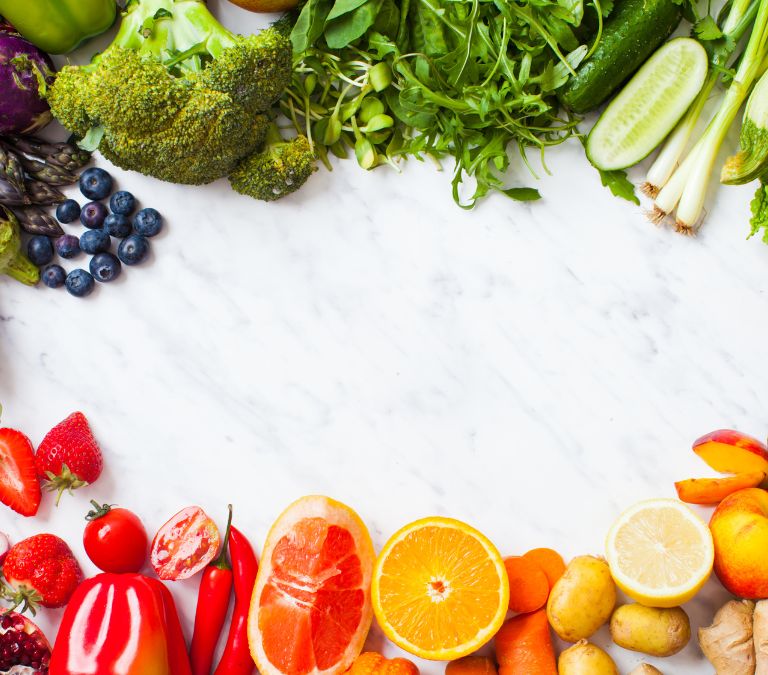
Even if we were not menopausal, eating fruits and vegetables has always been a good idea. They are packed with nutrients. Most fruits are an excellent choice for vitamins and minerals. They also contain antioxidants and fibers. A nutrient power-house, if I do say so myself. It is little wonder that we are advised to load our plates with fruits and vegetables. I mean, they are accessible sources of nutrients.
But for us, fruits and vegetables play another essential role. Studies have given us reasons to believe that fruits and vegetables aid in alleviating menopausal symptoms. They have shown particular promise in reducing the frequency and intensity of hot flashes.
Adding cruciferous vegetables to your diet could be quite beneficial. According to one study, cruciferous vegetables have a favorable effect on estrogen levels, raising the estrogen that reduces breast cancer risk while decreasing the estrogen that increases risk. Your go-to cruciferous vegetable is broccoli.
Let’s not forget that vegetables are also excellent sources of calcium and magnesium. They are very good for the bones as they minimize the risk of osteoporosis. Fruits and vegetables are also very good for weight loss purposes. As we become menopausal, one of the symptoms we have to face is weight gain.
And this weight gain comes with its truckload of complications. Consuming a good amount of fruits and vegetables, in addition to any other weight loss routine, would surely go a long way in helping us rid ourselves of that extra menopausal belly.
Consume Healthy Fats
I know it is against everything we have been taught, but there is such a thing as fat that is good for you. And during menopause and the period after it, we need to get friendly with this class of foods.
Let’s start with the most common healthy fats, the omega-three acids. These fats offer enormous benefits for women who are going through menopause. I read a study that concluded that omega-three acids had been proven to help with heat flashes and night sweats.
But more than these, healthy fats also play other roles. With menopause comes the decrease of various hormones, especially estrogen. Your body needs to up its hormone production and guess what makes up a significant part of hormones? Fats! They also help control fat-soluble vitamin absorption (A, C, E, D) and blood sugar. Fats will fill you up, so you stay fuller for a longer time and don’t go hungry in between meals. Coconut oil, olive oil, grass-fed butter, fatty salmon, avocado, and almonds are among the most delicate fats to include in your diet.
Phytoestrogens Are Important, So Eat Them
Phytoestrogens are plant derivatives that function similarly to estrogen. When these plants find their way into your body, they will act like estrogen, albeit a weaker version. It means that they can help reduce the symptoms of menopause. And they do.
Research has shown that consuming foods that contain phytoestrogens has helped manage many menopausal symptoms. They have proven to be especially useful in the management of hot flashes. They have also shown promise in maintaining bone structure, just like the way estrogen does.
The primary sources of phytoestrogens include soy, flaxseeds, chickpeas, grapes, plum, barley, e.t.c. When buying these foods, go as close to natural as possible. Getting these foods in a processed form might strip them of their functionality.
Get The Good Proteins
The loss of muscle mass and bone strength associated with menopause is linked to a drop in estrogen levels. As a result, women undergoing menopausal transition should increase their protein intake. Proteins are also necessary for blood sugar regulation, energy, detoxification, hormone transport and storage, and bone and muscle repair. Taking protein, particularly collagen peptides, daily helps maintain significantly higher bone mineral density than those who take a placebo powder.
Eggs, meat, fish, lentils, and dairy products are high in protein. You can use protein powders which are good for smoothies and baked products.
Eat Complex Carbs Instead
I know this is hard, considering that most of our staple foods are processed carbs. But maybe if we look at the disadvantages of consuming such sugars and the effect it has on the life of menopausal women like us, we might start understanding why complex carbs should be our go-to energy source.
First of all, refined carbs are easy to absorb into the bloodstream. It means you will get to eat more because you get hungry quicker. The more you eat refined carbs, the more you are tempted to binge, and in the end, we would have regained that weight we lost by doing all those exercise routines.
Eating refined carbs also messes with our moods. Because of how quickly they are absorbed, we tend to get an energy spike, followed by a drop so sharp that we begin to feel down, grumpy, and stressed. These will probably lead to other menopausal symptoms like hot flashes and body pains.
If you want to avoid these, it would be better to get your energy from complex carbs. They are more nutritious and take a longer time to digest. It means that you will feel fuller for a more extended period and won’t see the need to eat more. With the proper exercise routines and other adjustments to your lifestyle, you might be able to stave off that menopausal weight gain.
The two main types of complex carbs are fiber and Starch. You can find them in fruits, vegetables, whole grains, potatoes, oats, and peas.
Menopause diet – 7 Foods You Should Avoid During Menopause
We have seen that eating some foods has proven to help with menopause. In the same vein, some foods exacerbate the symptoms of menopause. These foods trigger or intensify the signs, or they might give a boost to some of the health risks we run as menopausal women. Finding out these foods and avoiding them will go a long way in helping you deal better with your menopausal symptoms. Let’s look at some of them.
Spicy Foods

I love my spicy foods, but I do not love them as much as I hate waking up at night soaked in my sweat. Spicy foods can cause perspiration, flushing, and other hot flashes symptoms.
Do you remember drinking that spicy broth that had you heaving a sigh of relief on a cold day? I am sure it felt wonderful, right? The heat in these foods can cause your blood vessels to dilate, making your mouth feel like it’s on fire. While this is beneficial if you’re congested and want your nose to flow, it’s not the ideal option for menopausal women.
One of the most prevalent signs of menopause is hot flashes. And menopausal hot flashes are usually due to the expansion of blood vessels. More blood rushes through your body as a result of this. Your face, neck, head, and chest feel flushed, heated, sweaty, and red.
Alcohol
I always enjoy having a glass of wine after meals. It is my guilty pleasure. However, I recently discovered that these could trigger my menopausal symptoms. You see, alcohol has a similar effect on your blood vessels that spicy food does. It causes it to dilate, which can induce hot flashes and night sweats.
Alcohol also does not allow for a good night’s rest. With alcohol, even if you sleep, it won’t be restful, and it becomes worse for menopausal women who might already be having sleep issues because of their menopausal symptoms.
Caffeine
The average adult drinks a lot of coffee. According to a report, I heard the average adult woman drinks around 3 cups of coffee per day. The discussion around caffeine for menopausal women has gotten some mixed observations. While many believe that coffee would help you sleep better, which is a good thing, especially for menopausal women, other research has shown that caffeine can induce vasomotor symptoms in menopausal women. It means that taking caffeine incredibly close to your bedtime can cause you to have night sweats, increasing your chances of getting hot flashes.
Caffeine has also been implicated in reducing calcium levels in the body. It is not good for us because we are already struggling with our body’s increased demand for calcium. Reducing calcium levels opens us up to osteoporosis and reduces bone density risks.
Why taking caffeine might be a good idea, it will be best that you check if it triggers your menopausal symptoms, and even if it doesn’t, make sure to take it in moderation. Also, you might be thinking, “I do not drink coffee, so I am safe.” Well, that is not entirely true. I know that in our world, caffeine is synonymous with coffee, but caffeine can be found in other drinks like your cup of tea or that can of soda. Make sure to check labels before you buy.
Processed Foods
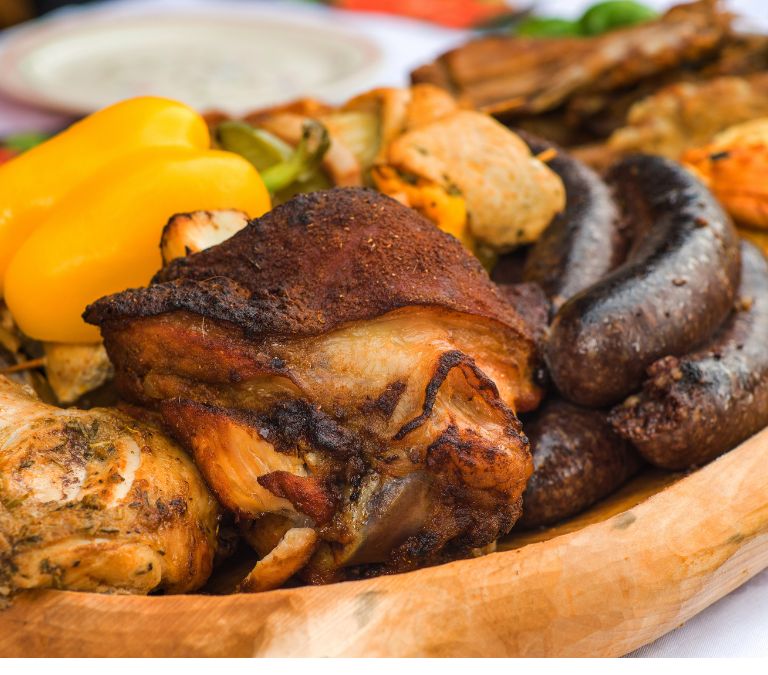
We have talked about this before but processed foods, although they are everywhere you look, are not suitable for you. They become even worse during menopause. These foods will cause you to bloat, thereby reducing sleep. They will also cause you to binge eat, and science supports this. Consuming too much of these foods will put you at risk of certain health conditions. They also increase your chances of getting cardiovascular diseases. Cases that are already increased enough because we are menopausal.
Processed foods are not suitable for our moods either. They might provide an energy boost. But then, this spike will fall just as fast, which will leave you tired and grumpy. Combine these with the bloating, and you have a very stressed woman. Well, maybe now, after reading this, you will go for the healthier snack choices.
High Fat Foods
Fast food can also be a convenient on-the-go option. You can grab fast food on your way to work or back after a stressful day at work. But the thing is, fast foods are often rich in fat. Heart disease, already a danger for women going through the transition, can be exacerbated.
Furthermore, because weight gain is typical during menopause, controlling your fat consumption is one approach to shedding and maintaining a healthy weight.
Nuts, avocadoes, olive oil, and other healthy options discussed above are good fat sources.
During menopause, choose lean cuts of meat with high protein sources because other cuts might contain fats and induce cardiovascular conditions. A better choice would be to choose fish over meat. It is a healthier option and is rich in good fats.
Foods That Have A Lot Of Salt Content
Salt is good. It adds taste to most of our foods, but as we grow older, we might have to start cutting down on salty foods. It is because salt has reduced bone density in menopausal women. We do not need this as we are already at risk of suffering from osteoporosis. There is also good reason to believe that a high salt intake will increase our chances of having high blood pressure, a condition that we already run the risk of suffering because of the dropping estrogen levels we face. A bit of salt in your diet is a good idea, but keep it moderated.
Hot Soups and Drinks
Hot drinks, like spicy foods and alcohol, can induce hot flashes. In fact, during the menopausal transition, keeping as cool as possible is essential. Hot flashes and night sweats are already heat issues that we have to deal with. Why would you take other heat inducers, especially when you know that they are also capable of causing night sweats and hot flashes? Stay as cool as you possibly can.
Menopause can quickly become a hated stage of a woman’s life because of hot flashes, anger, weight gain, and mood changes. You’ve probably heard a lot of complaints about “the menopausal transition.” Defeat such complaints with this guide on what you can do to make the transition easier by making simple but necessary changes to your diet.




